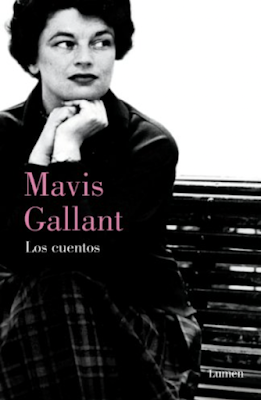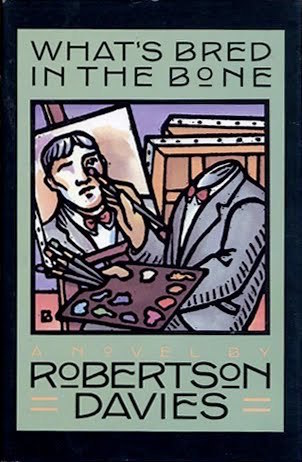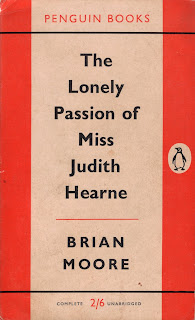Night of the Horns/Cry Wolfram
Douglas Sanderson
Eureka, CA: Stark House, 2015
Shame he isn't around to see it.
I read and wrote about the second novel in this pairing, Cry Wolfram (a/k/a Mark It for Murder), a few years back. Night of Horns was something new, though it had always stuck in my mind as Sanderson's only Penguin.
Green bars and everything.
"A man's struggle with humiliation", the publisher's pitch, also stuck. Sanderson's previous thrillers dealt with murderers, drug traffickers, human smugglers, white slavers and political assassins. Here it's humiliation?
The struggling man is California lawyer Robert Race. Better known as Bob, he's made a name for himself by defending the disadvantaged. His latest case involves an immigrant named Garcia who is accused of having interfered with several young girls.
A lost cause.
His greatest victory involved Tony Fontaine, a latino teenager who'd been accused of dealing weed. Not only did Race get him off, he's clothing the kid and paying his way through college. Now twenty. Tony sometimes drops by the flat for a home cooked meal. Who can blame him? That Mrs Race – first name: Eve – is quite a cook… or not. What I know for sure is that she's a looker and is extremely amorous. Two years into marriage, the Races are as randy as ever.
Skirts rise, pants drop.
Trouble is that in springing his young charity case Race bribed a witness, and big time crook Al Kresnik knows all about it. He promises to forget everything if the lawyer agrees to pick up a suitcase and hold onto it for a bit. After some hesitation, Race does just that, only to be rolled and very nearly killed. He soon discovers the suitcase gone, along with his wife. This is where humiliation enters the picture.
Turns out that despite the married couple's incessant coupling, Eve had been seeing other men. Top spot was once held by fellow lawyer Paul Taylor, a neighbour from the floor below, but he's since been supplanted by bad boy Tony. It's almost certain that the young drug dealer – let's acknowledge it and move on – was the guy who stole the suitcase and tried to rub out poor Bob Race.
Faced with these harsh truths, the aptly named Race sets off in pursuit of the suitcase, Tony and his wife. It's in this that I found
Night of Horns most interesting. Just what is Bob Race after? Retrieving the suitcase might just save his skin, but is he really out to get Tony? Or is it all about Eve?
Night of Horns is typical Sanderson in that the pace is frantic; like pretty much everything else he wrote, it begins and ends in a matter of days. Not much time, but enough for Race and the reader to come to hate Eve.
Do I spoil things in relaying that he finds comfort with a girl named Ginny Ferrer?
Give the guy a break.
Best passage:
I'd met Mrs Fontaine twice before, once at the court, once at my office when she'd heard that I'd pay Tony's college fees. She had struck me as elderly, ill and pathetic. I guess I wanted her to be like that.
She opened the door.
She had on a negligee and a slip. The negligee showed most of the slip and the slip showed most of her breasts. Her feet were bare, her hair hadn't been combed in a while, her eyes were bleary and the rye on her breath would have knocked down a dray horse.
Trivia: Night of Horns was first published in 1958 London by Secker & Warburg. The first American edition was published by Fawcett under the title
Murder Comes Calling. Its back cover features dialogue that does not appear in the novel.
Might this be the work of the same hand that wrote
the misleading cover copy on the Fawcett edition of Sanderson's Pure Sweet Hell?
More trivia: Adapted by Terence Dudley for a 1964 episode of the BBC's
Detective. Frank Lieberman starred as Bob Race. Eve was played by the beautiful Barbara Shelley.
A Bonus: Another review, followed by much discussion about identity, categorization, markets and other preoccupations at Sergio Angelini's blog.
Object: A 261-page trade-size paperback, mine is labelled an advance copy but is otherwise identical to the new Stark House edition that is right now hitting American bookstore shelves. Included is a very fine and informative Introduction by Gregory Shepard.
Access: Though Stark House has no Canadian distribution,
Night of Horns/
Cry Wolfram and its two other Sanderson books are readily available through
the publisher's website.
Collectors may feel frustrated in that Secker & Warburg's true first edition is nowhere in sight. Not online anyway. Copies of the Penguin edition are plentiful and cheap. Prices range from £1.75 to £10.00. Condition is not a factor.
Murder Comes Calling, Fawcett's first American edition, was published the same year using the author's Malcolm Douglas
nom de plume. Copies of this edition are just as plentiful and nearly as cheap. Prices range from US$3.44 to US$25.00. Again, condition is not a factor.
Good old University of Toronto has a copy of Penguin's
Night of Horns. No Canadian libraries hold
Murder Comes Calling.
* Full disclosure: I am Ricochet Books' series editor.










































